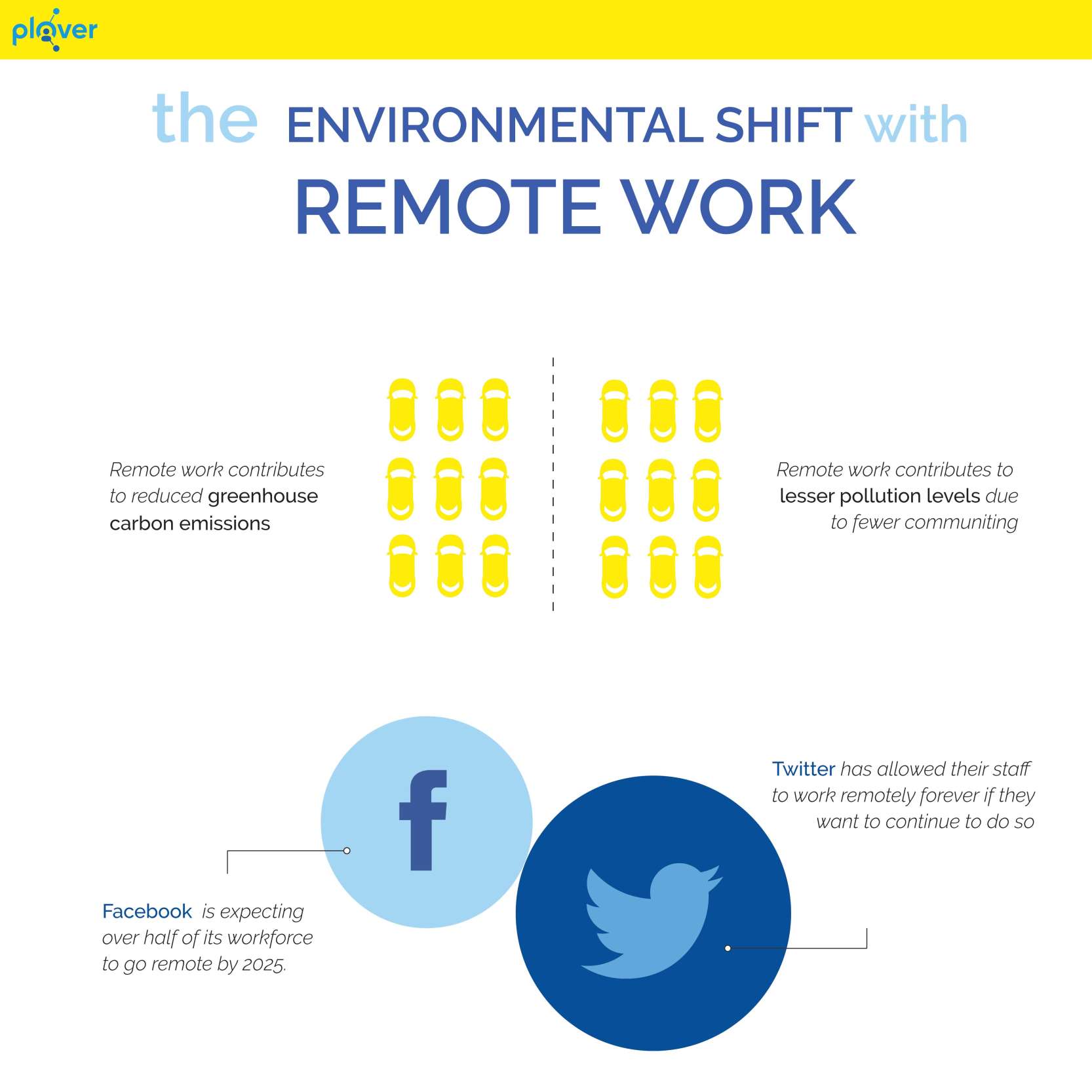
While remote workers of the pre-Industrial Revolution days do not have much in common with
remote workers of the present, it still proves that remote work has been evolving since the
beginning of the workforce and is better than the conventional office setup as we know it.
From an ecological perspective, remote work culture substantially contributes to reduced
carbon emissions since people don’t have to commute that often, resulting in lesser
pollution levels. Organizations are now focusing on improving the teleworking experience to
help employees remain proactive, improve their time management, and self-organizing ability.
Meanwhile, social media giant Twitter has allowed its staff to work remotely forever,
following an announcement last year. This echoes the sentiment of 25% of the technology
workforce who want to move permanently to remote work.
However, in the history of remote work, this wasn’t always the case. In 2018, a Facebook
official was quoted saying that the company wanted as few employees as possible to work from
home, amongst concerns of lapsed productivity and lack of accountability.
Thanks to the pandemic, Facebook has had a shift in its philosophy and is expecting over
half of its workforce to go remote by 2025.

We can broadly categorize companies hiring remote talent into 2 categories :-
Remote first companies
A remote-first company runs its operations on a fully remote setup. They are also called distributed companies. The work culture is more intentional, and employee wellness is weaved into the core. Teams can work from anywhere and carry out any service, from registering the business to launching products to the market.
Examples - Automattic(better known for WordPress), Zapier, Gitlab, Toptal, etc.
Remote Friendly Companies
A remote-friendly company, however, is one that not only has physical offices in different locations but also allows its workforce to work remotely according to company policy as well as individual preferences. Remote-friendly companies aim to strike a balance between in-person and virtual facetime, which usually means organizing yearly retreats and other team bonding activities for a distributed team.
Examples - Microsoft, Google, Facebook, etc.
Equipment & tools for smooth working
Tools are central to support any kind of work, but even more so while working remotely. As
the need to visit a physical office reduces, reliance on tools to keep in touch increases.
The decision of the right set of tools is often the most vital priority to tackle because
there are just too many. Simply put, the more the tools, the more information is scattered
and the more difficult it is to coordinate.
There are many tools available in the market. These are a few types of tools, based on the needs/requirements of the organization :-
Communication Tools :
- Microsoft Teams
- Zoom
- Skype
- Remo conference
- Discord
Project Management :
- Monday.com
- Trello
- Base Camp
- Asana
- Zoho Projects
Time Tracking :
- Jibble
- Toggl
- Time doctor
Documentation Tools :
- Gsuite
- Airtable
- Notion
If you enjoyed this piece, we've crafted a related article delving into Tips for Attracting and Attaining Top Talents as a Remote-first Startup. Explore it here .